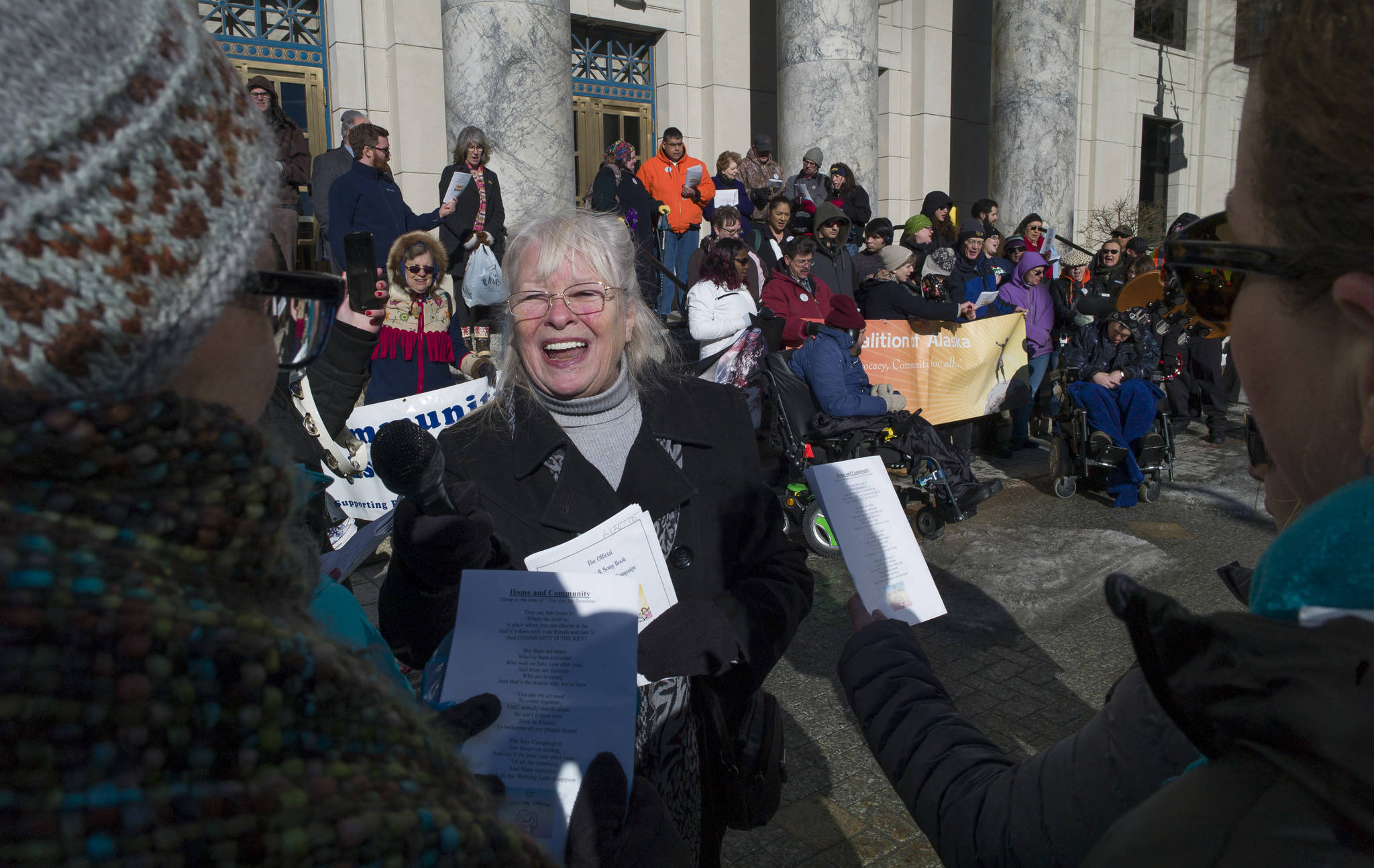Singing to the tune of “You Are My Sunshine,” Key Coalition of Alaska members and supporters flooded the steps of the Alaska State Capitol cheerfully supporting equality for people with disabilities Friday afternoon.
The Alaska Key Coalition, started in 1988, is a nonprofit statewide advocacy organization of people with disabilities and their families, friends and other supporters.
Supporters of the Key Coalition, like Lizette Stiehr, explained the goal of Friday’s rally was to let state legislators that they are not going to stop promoting their causes until something is done. The Key Coalition of Alaska website states the group’s goals include promoting a “stable and sustainable fiscal plan.” Stiehr said there are too many people waiting for services and she, and the Key Coalition, are concerned even more services will be discontinued.
“We want to thank the legislators for the services that are provided,” Stiehr said. “But, we also want to let them know not to cut any more services.”
Karli Lopez, whose son Corbin, 6, has Down syndrome and autism, explained she was at the rally, first and foremost as a parent, but also as an advocate for ending the Medicaid waiver wait list for people with intellectual and developmental disabilities (IDD).
Lopez explained there is time period to even get on the IDD list and she would like to see that changed. A person must apply to get on the list and then wait to be drawn. Once drawn for the waiver, the Senior and Disabilities Services sends a “Notice to Proceed” letter with a list of care coordinators in the individual’s local area, according to the Alaska Department of Health and Social Services Senior and Disabilities Services website. The Alaska Key Coalition states that at this time, the list is now more than 900 people, due to funding levels.
“We have been waiting 31 years for the wait list to end,” Lopez said. “We will come every year here until it does.”
Lopez said the number of people who do get accepted has decreased and so have the hours people even get to receive services. Lopez said it’s difficult because it’s hard to find caregivers because you can’t use “a typical babysitter.”
“People used to receive 40 hours of rehabilitation,” she said. “Now they only receive 12. How would you feel if you only had 12 hours a week to live your life?”
Shelly Vendetti Vuckovich, and her adopted daughter Claire, 10, joined the rally because she wants to make sure her daughter gets fair and equal treatment, Vuckovich said. Claire went through hardships as a child, Vuckovich said.
“We are all Alaskans,” Vuckovich said. “We come every year to hear the crowd shout Claire’s name. Sometimes I think it’s hard for people who sit in their office every day to really understand what is going on and that is why we are here, so (legislators) can hear us.”
• Contact reporter Gregory Philson at gphilson@juneauempire.com or call at 523-2265. Follow him on Twitter at @GTPhilson.

